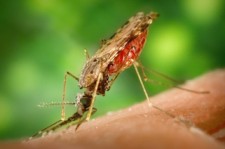 The Zika virus is big news and there is a lot of panic going around, similar to what happened with Ebola in 2014. Because there is an instance of the virus apparently being sexually transmitted, that has created a worrisome new scenario.
The Zika virus is big news and there is a lot of panic going around, similar to what happened with Ebola in 2014. Because there is an instance of the virus apparently being sexually transmitted, that has created a worrisome new scenario.
To try and get serious and informed insight on what it is, and how it might be stopped, the ABC affiliate in Denver had Dr. Gil Ross, Senior Director of Medicine and Public Health here at the American Council on Science and Health, on its program to talk about ways to prevent the spread.
For people who like to use techniques from the past, there is a great one that still works: DDT. Though environmentalists think it must be harmful because it is banned in the U.S., that was never shown to be true. Because it was more of a public outcry due to bad publicity, it is still used in many countries, and the U.S. EPA, in conjunction with the World Health Organisation, created guidelines for how people in places afflicted with malaria should spray DDT inside their homes.
You can check out the Dr. Ross interview here.
If it's good enough for the EPA to recommend it to stop Dengue and malaria in other countries, why isn't the EPA talking about it for Zika in the U.S.?
The New American also consulted Dr. Ross, sharing his insight on how DDT deserves a re-think. The fact is, it's always a bit of a luxury to say a product should be banned when it is politically convenient, even if it has shown no harm -- American scientific genius will create a new pesticide. But when one works, and has it has never be shown to be harmful, it's time to give it a second look.
At The Daily Caller, Michael Bastasch gathers Dr. Ross and other experts who think DDT could be a low-cost solution, and also quotes one contrarian, Joseph Conlon, spokesman for the American Mosquito Control Association, who says, The widespread resistance to DDT today [among mosquitoes] means it wouldn t work.



